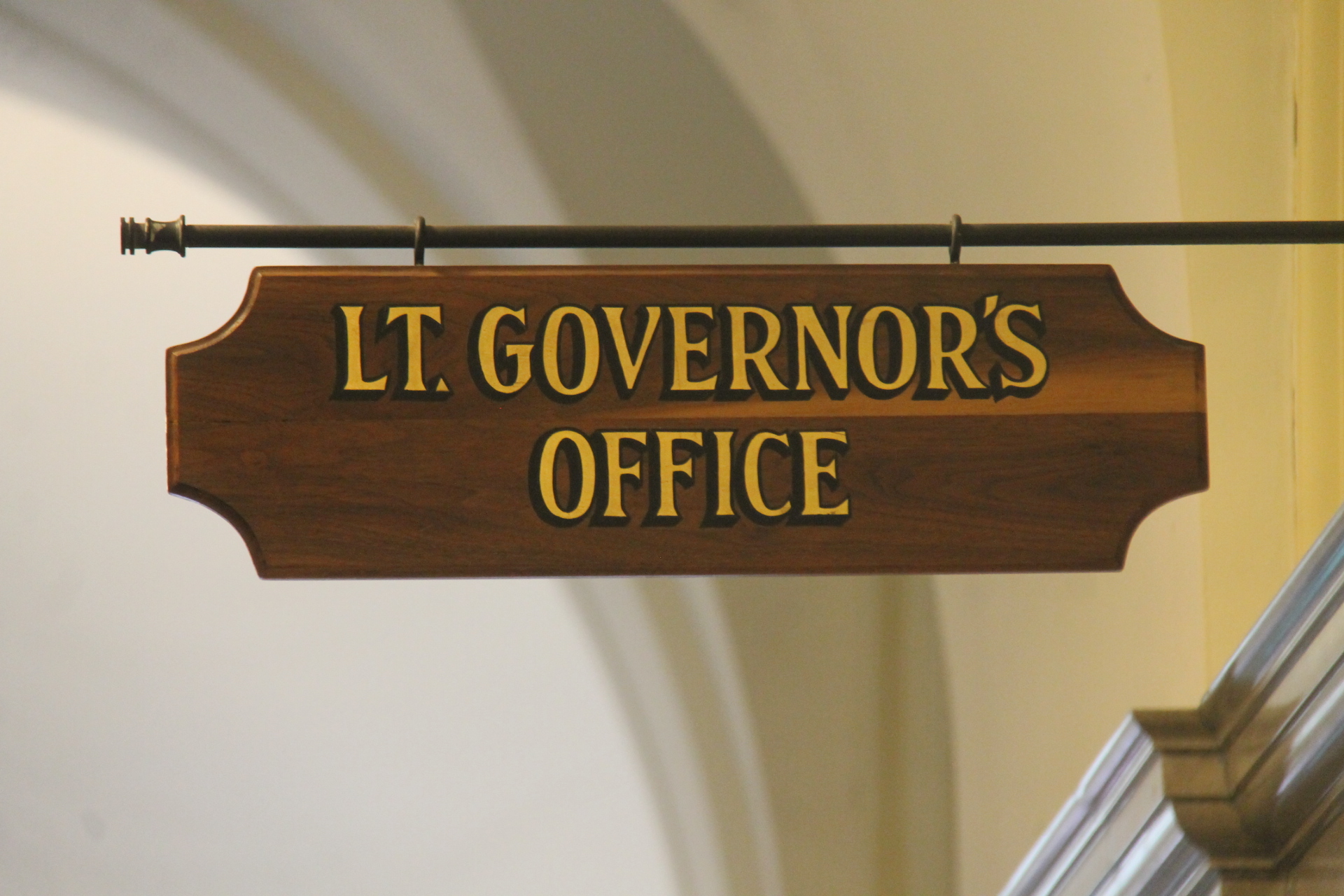JEFFERSON CITY, Mo. – As the rumors continue swirling around the Missouri State Capitol ahead of the release of a House special investigative committee report into Gov. Eric Greitens, some wheels are already turning over the question of what might happen if the embattled Republican governor steps down or is removed from office.
The law is clear in that matter, with the Missouri State Constitution stating that if the governor leaves, the lieutenant governor takes over his or her term. In this instance, it means Lt. Gov. Mike Parson would become the sitting executive for the state.
“If there be no lieutenant governor, or for any of said causes the lieutenant governor is incapable of acting, the president pro tempore of the Senate, the speaker of the house, the secretary of state, the state auditor, the state treasurer, and the attorney general in succession shall act as governor until the disability is removed.”
No one is disputing that, but on the matter of what happens with the lieutenant governor’s vacancy, things get tricky.
The state constitution gives the governor authority to “fill all vacancies in public offices unless otherwise provided by law.” But a law states that when there is a vacancy in an elected office “other than in the offices of lieutenant governor, state senator or representative, sheriff or recorder of deeds in the city of St. Louis, the vacancy shall be filled by appointment by the governor.”
So, Missouri law allows the governor to appoint a replacement if the secretary of state, attorney general, treasurer, auditor or a U.S. senator leaves office, but no clear exception or explanation exists regarding how the lieutenant governor should be succeeded. In short, things are about as clear as mud.
Republicans attempted to address the issue in 2013 with a piece of legislation sponsored by now-U.S. Representative Jason Smith. The bill would have required a new lieutenant governor to be selected in the next general election while an aide for the departed officeholder would handle the ministerial duties. The office’s responsibilities as Senate president would be handled by the Senate President Pro Tem.
However, that legislation was vetoed by then-Gov. Jay Nixon, who said it would have “created a confusing and untenable process for filling the vacancy in the office of lieutenant governor” while also turning over constitutional responsibilities to a “vaguely defined staff member.”
Smith, at the time, said it was a shame that Nixon had vetoed the bill and that the Democrat should have allowed the voters to be able to elect a new lieutenant governor, saying that was “how a democracy works.”
Earlier in that same year, Nixon said he had the authority to appoint a replacement, saying history was on his side. At question was whether Nixon would be appointing a new lieutenant governor if Peter Kinder won the Republican Party’s nomination to replace U.S. Rep. Jo Ann Emerson. That urgency dissipated after Kinder did not win the GOP nomination.
The history of the state shows that the most recent vacancy in the Lt. Governor’s office came when Roger Wilson took over the executive branch following the death of Mel Carnahan. After that year’s election, Wilson appointed the newly elected Democratic Lt. Gov. Joe Maxwell to begin his tenure early.
In 1969, Democratic Gov. Warren Hearnes appointed the just-elected Lt. Gov. William S. Morris to fill the remaining time of Thomas Eagleton, who left for the U.S. Senate. It’s worth noting that the leader of the State Senate at the time refused to recognize the appointment, calling it illegal and threatening to throw Morris out of the chamber if he came to preside. Morris ended up waiting until his official term began.
But at the time, Republicans argued against the Governor making an appointment, with then-House Speaker Tim Jones saying the vacancy should be filled through an election.
Now, the tables have turned, and Republicans are in power.
The issue here is that, in terms of a governor simply appointing a lieutenant governor to the office, it’s never been done. The only instances it has happened in have been with a person already elected by the general public in an election.
Governors have appointed members to other statewide offices, the most recent of which was the appointment of Nicole Galloway to the position of state auditor by Gov. Nixon.
And with statutes remaining unclear in the matter, some believe that means the only option is to allow for the people to elect a new lieutenant governor. That, however, by statute, would mean waiting until the next general election, which could be taken to mean the next literal general election (2018) or the next general election in which the lieutenant governor’s term would be up (2020).
It also brings into question how candidates for a general election would be selected, as nothing specifically lines out a primary, which could mean political parties choose the nominees instead of voters.
But, it’s also worth noting that the Republican-led legislature could file an amendment to a bill this session in an attempt to clarify the statute and address the problem. Whether it’s something the legislature feels must be done might very well depend on the outcome of the investigative committee report and/or the trial.
Benjamin Peters was a reporter for The Missouri Times and Missouri Times Magazine and also produced the #MoLeg Podcast. He joined The Missouri Times in 2016 after working as a sports editor and TV news producer in mid-Missouri. Benjamin is a graduate of Missouri State University in Springfield.







